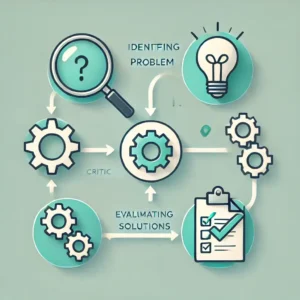As human beings, we all want to achieve our goals and fulfill our dreams. However, the road to success is often long and winding, and it can be challenging to stay motivated and focused along the way. That’s where the power of leverage comes in. In this article, we’ll explore what leverage is, how it can be used to achieve more with less effort, and some practical tips for incorporating leverage into your life.
What is leverage?
At its core, leverage is simply the concept of using a small amount of force to achieve a large amount of output. In the world of finance, leverage refers to using borrowed money to invest in assets that have the potential to generate a higher return than the cost of borrowing. However, in the context of personal development, leverage can refer to any strategy or tool that helps you achieve more with less effort.
The benefits of leverage
The power of leverage lies in its ability to help you achieve your goals faster and more efficiently than you could on your own. By leveraging the resources and skills of others, you can tap into a much larger pool of knowledge, experience, and creativity. This can help you come up with new ideas, solve problems more quickly, and make progress towards your goals more rapidly.
Types of leverage
There are many different types of leverage that you can use to achieve your goals. Here are just a few examples:
Financial leverage
As mentioned earlier, financial leverage involves using borrowed money to invest in assets that have the potential to generate a higher return than the cost of borrowing. This can be a powerful way to build wealth over time, but it also comes with risks and requires careful planning and management.
Time leverage
Time leverage involves finding ways to maximize your productivity and efficiency, so you can achieve more in less time. This can involve strategies like delegating tasks, automating processes, and outsourcing work to others.
Network leverage
Network leverage involves building relationships with people who can help you achieve your goals. This can include mentors, advisors, business partners, and colleagues in your industry.
Knowledge leverage
Knowledge leverage involves tapping into the expertise and experience of others to learn new skills, gain insights, and solve problems more effectively. This can involve reading books, attending seminars, or working with a coach or mentor.
How to incorporate leverage into your life
Now that you understand the power of leverage, how can you start incorporating it into your life? Here are some practical tips to get you started:
Identify your goals
The first step to leveraging your resources effectively is to identify your goals. What do you want to achieve? What are your biggest challenges? Once you have a clear picture of what you want to accomplish, you can start to look for ways to leverage your resources to get there faster.
Build your network
Networking is a key component of leveraging your resources. Start by identifying people who can help you achieve your goals, and then look for ways to connect with them. Attend industry events, join online groups, and reach out to people on social media. Remember that networking is a two-way street, so be sure to offer value to others as well.
Automate your processes
One of the most powerful forms of leverage is automation. Look for ways to automate repetitive tasks and processes, so you can focus on more important work. This can involve using tools like email autoresponders, social media schedulers, and project management software.
Learn from others
Don’t be afraid to learn from others. Seek out mentors and coaches who can help you develop your skills and expertise. Read books, attend seminars, and take online courses to expand your knowledge and gain new perspectives.
Be strategic with your investments
Another way to leverage your resources is to be strategic with your investments. Whether you’re investing in stocks, real estate, or your own personal development, it’s important to do your research and make smart decisions. Look for opportunities that have the potential to generate a high return on investment, but be sure to weigh the risks as well.
Delegate tasks
Delegation is another powerful form of leverage. Look for opportunities to delegate tasks to others who have the skills and expertise to handle them more effectively. This can free up your time and energy to focus on more high-level tasks and projects.
Focus on your strengths
Finally, it’s important to focus on your strengths. Leverage is all about finding ways to achieve more with less effort, and one of the best ways to do that is to focus on the things you’re already good at. This can involve delegating tasks that aren’t in your wheelhouse, or finding ways to outsource work to others who are more skilled in those areas.
Conclusion
In conclusion, the power of leverage can help you achieve your goals faster and more efficiently than you could on your own. By leveraging your resources, skills, and knowledge, you can tap into a much larger pool of ideas, insights, and expertise. Whether you’re looking to build wealth, advance your career, or improve your personal life, leveraging your resources is an essential strategy for success.
FAQs
- What is the difference between leverage and debt? Leverage involves using a small amount of force to achieve a large amount of output, while debt involves borrowing money that must be repaid with interest.
- How can I leverage my network effectively? To leverage your network effectively, focus on building relationships with people who can help you achieve your goals, offer value to others, and be strategic in your networking efforts.
- Is financial leverage always a good idea? No, financial leverage comes with risks and requires careful planning and management. It’s important to weigh the potential benefits against the potential risks before using financial leverage.
- How can I automate my processes effectively? To automate your processes effectively, identify tasks that are repetitive or time-consuming, research automation tools that can help, and be willing to invest time and resources into setting up and maintaining those tools.
- How can I delegate tasks effectively? To delegate tasks effectively, identify tasks that can be handled by someone else, choose the right person for the job, communicate your expectations clearly, and be willing to provide guidance and support as needed.


